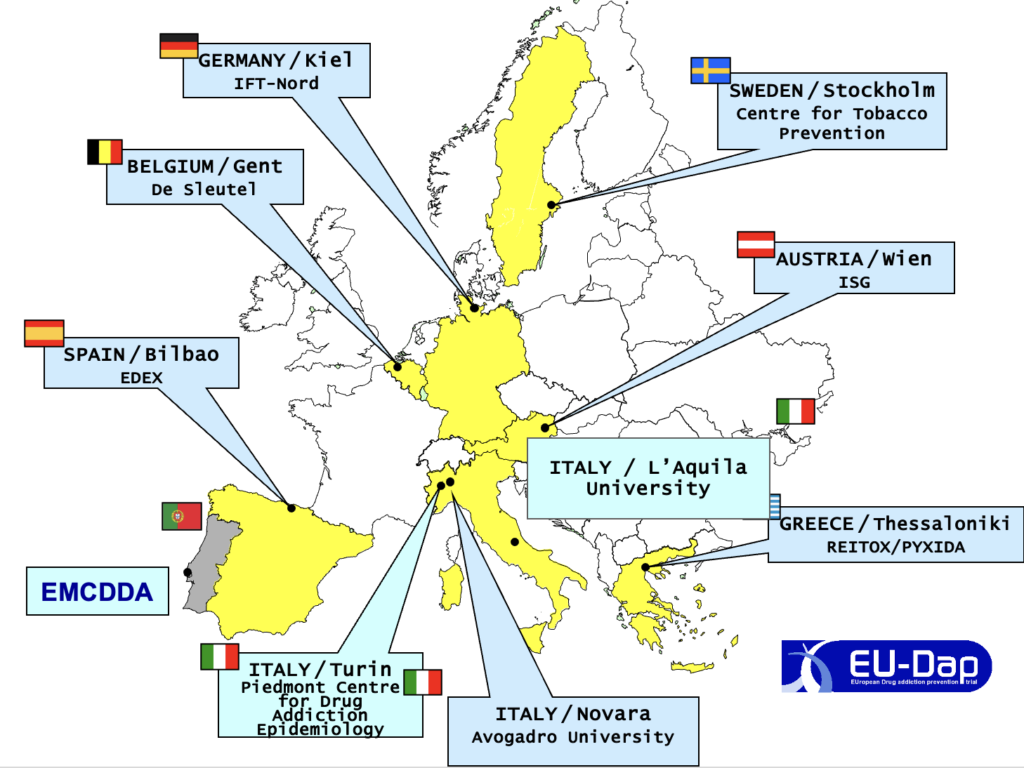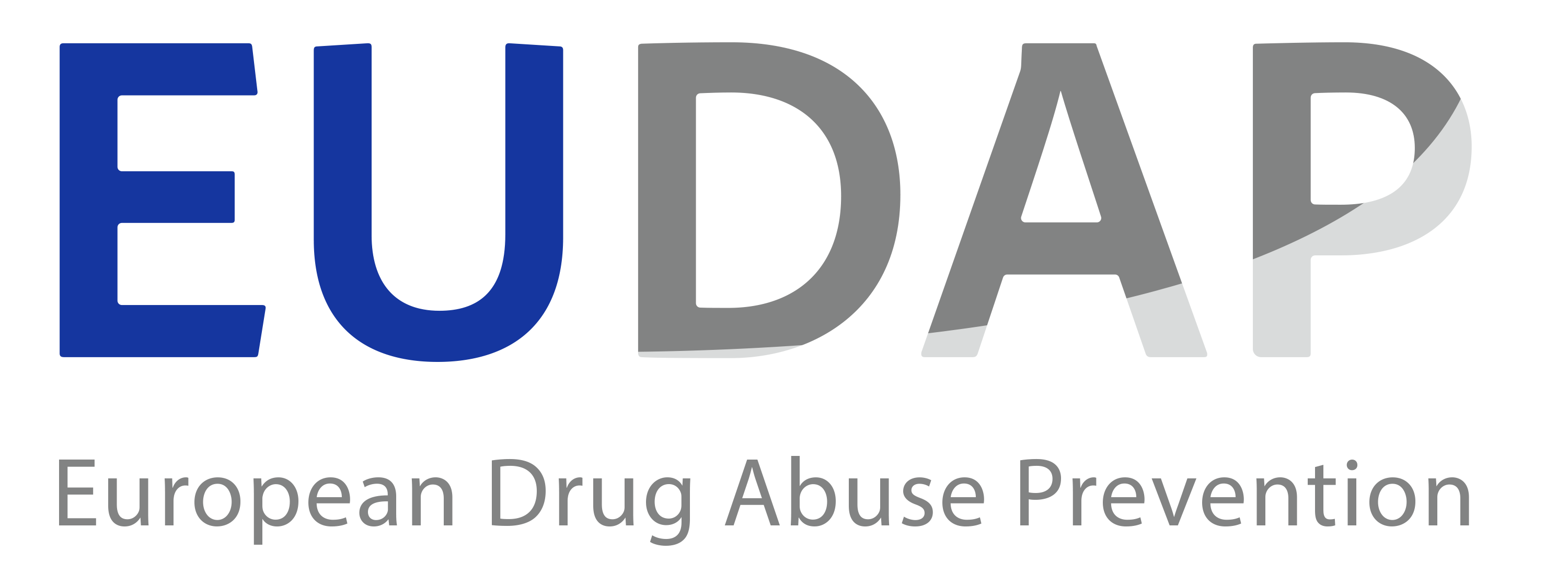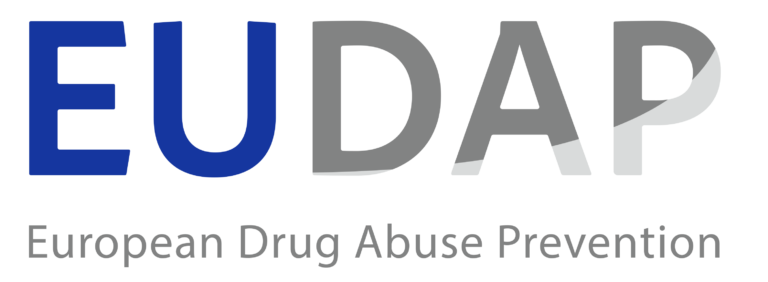EU-Dap 1: Developing and Testing a New Drug Use Prevention Curriculum – 2003-2005
At the time of the first EU-Dap proposal in most European countries school-based interventions for the prevention of substance use were implemented without solid evidence of effectiveness. The EU-Dap project aimed to fill in this gap.
The EU-Dap 1 project aimed to:
- develop a new European drug use prevention program for the school setting
- evaluate the effectiveness of the program in preventing and reducing the use of tobacco, alcohol and drugs
- encourage the use of effective drug use prevention programs in Europe and sharing good practices.
The “Unplugged” program was created by the network of European prevention experts who participated in the project. It was specifically designed for European schools, using theories, principles and methods deemed as the most effective in preventing drug use among adolescents.A cluster Randomized Controlled Trial was designed and conducted to test the effectiveness of the Unplugged program. A minimum of 15 schools were recruited by each centre whereas the centres in Stockholm and Turin engaged twice as many schools. The assignment of schools to the intervention or control conditions was done at random by the study coordinating centre. Within each school, at least two classes participated. The intervention schools followed the Unplugged program and the control schools followed, if anything, the usual health education program. Intervention schools also combined parental involvement or leadership of class peers. Three combinations were implemented in intervention schools:
- Basic curriculum: Unplugged program led by teachers to students;
- Parent component: Unplugged program plus the involvement of parents;
- Class-Peer component: Unplugged program plus the involvement of peers.
The Unplugged curriculum (12 school-hours) was led by trained teachers who participated in a 2.5 day training session prior to the start of the program where they received the Unplugged teaching manual. The Parent component included three evening seminars led by an expert. The Class-Peer component was carried out by designated students in each class with minimal supervision by the teachers. A standardized questionnaire was developed and administered to students of both intervention and control schools during the first month of the 2004-2005 school year collecting information on:
- social environment;
- one’s own substance use;
- knowledge and opinions about substances;
- substance use in the immediate environment;
- family and social environment;
- school environment and school climate;
- problems and skills.

Using the same questionnaire, a second assessment took place three months after completing the Unplugged program (May-June 2005). A subsequent follow-up took place one year after (September-October 2006). To protect the identity of the youth and the confidentiality of their responses, the questionnaires were identified by a code independently generated by each participant. A total of 150 schools and over 7000 students participated in the EU-Dap Trial. The implementation of the program, the difficulties experienced by the teachers in implementing the Lessons, and possible suggestions for improvements were investigated and registered through specific monitoring forms all along the implementation phase. Results of the trial revealed the effectiveness of the program in reducing the prevalence of cigarette smoking, drunkenness episodes and cannabis use, among the 12-14 years old European students who received the program vs the control students. Beneficial effects of the program persisted at fifteen-month follow-up on drunkenness episodes, alcohol-related problems, and cannabis use, and were stronger among males and adolescents of low socioeconomic level schools. The parental and peer components did not add any additional effectiveness to the Unplugged program. However, anecdotal feedback from parents and teachers indicate that the parental component adds value to the program.
Research tools
Workgroups
Project report
Project final report
Funding
The EU-Dap 1 project was granted by the European Commission within the 2002 Public Health Program for drug prevention (Grant #SPC 2002376). Additional regional/national funding was provided by: Compagnia di San Paolo (grant # 2002-0703) and Lega Italiana per la Lotta contro i Tumori (grant # 2003 43/4) for Italian centres, Swedish Council for Working Life and Social Research (grant # 2002-0979), Stockholm County Council (Public Health grant # LS 0401-0117) and Alcohol Research Council of the Swedish Alcohol Retailing Monopoly (grant # 07-8:1) for the Swedish centre.


